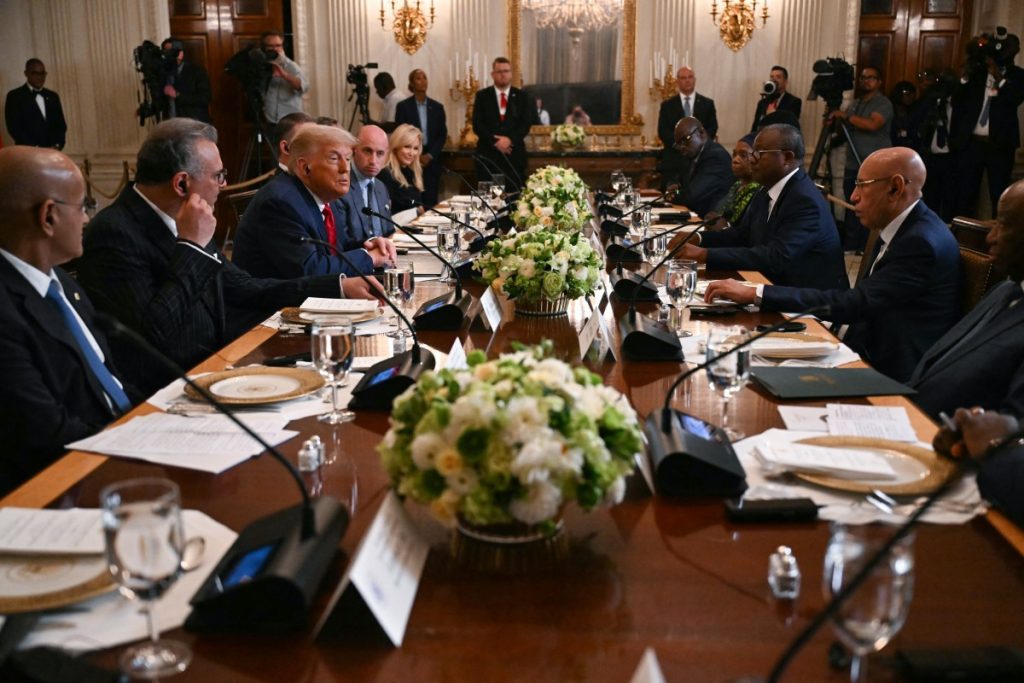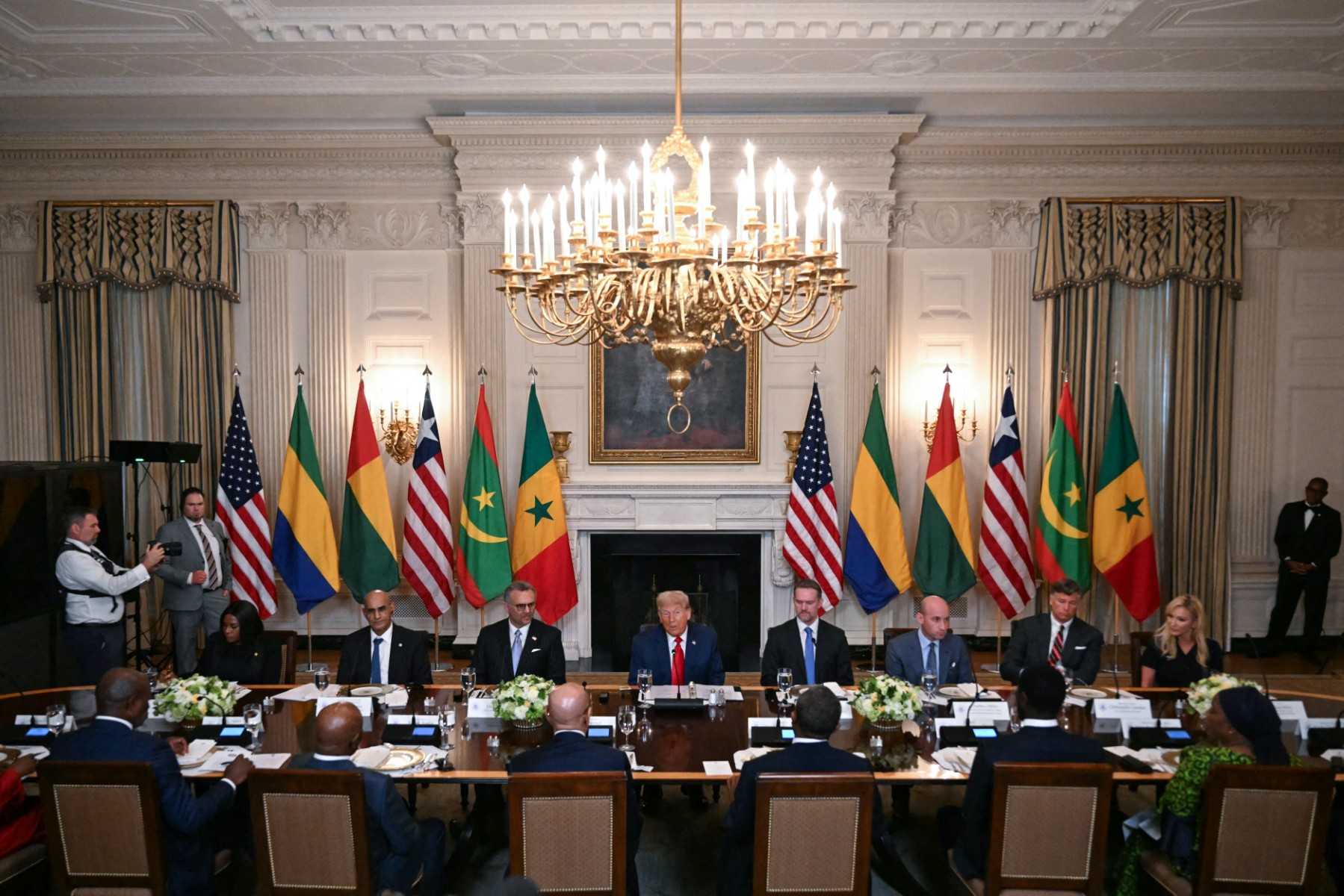US President Donald Trump praised the abundant natural resources of West Africa as he welcomed five of its leaders to a White House summit on Wednesday, which aimed to enhance trade in response to the increasing influence of Russia and China.
The Trump administration is focused on strengthening economic ties with the resource-rich region while simultaneously reducing foreign aid to Africa and imposing 10 per cent tariffs on imports from these nations.
“We’re working tirelessly to forge new economic opportunities involving both the United States and many African nations,” Trump told the assembled leaders and reporters ahead of the meeting.
Conversations with the presidents of Senegal, Liberia, Guinea-Bissau, Mauritania, and Gabon were anticipated to centre around business opportunities and security issues.
These discussions, held over lunch in the State Dining Room, took place as Washington sought to secure a stable supply of vital minerals.
All five of the invited countries are endowed with valuable natural resources, including manganese—a crucial component in the manufacturing of stainless steel and batteries—along with iron ore, gold, diamonds, lithium, and cobalt.
However, the talks will be overshadowed by the Trump administration’s substantial changes to the United States’ relationships with African nations.
Earlier this month, the administration closed the US Agency for International Development (USAID) and announced a shift from a “charity-based model” to a focus on trade-oriented partnerships.
West Africa is projected to be among the areas most significantly affected by the reduction in aid, which a study published in the Lancet medical journal indicates could result in over 14 million additional deaths globally by 2030.
China, the United States’ primary rival, has made significant investments in various nations that were represented at the summit, with Gabon supplying 22 per cent of the manganese used in its battery production.

Meanwhile, Russia has been backing the emerging Alliance of Sahel States, which borders several of the countries involved in Wednesday’s meeting.
Security concerns are expected to take precedence during the discussions, particularly regarding international drug trafficking and immigration.
The Sahel region of West Africa has faced persistent attacks from terrorist organisations, and a series of coups has contributed to deepening political turmoil.
Individuals from this region constitute a notable proportion of the Black immigrant demographic in the United States, which experienced an almost 25 per cent increase from 2012 to 2022, reaching 4.3 million people.
Guinea-Bissau, which serves as a transit zone for cocaine trafficking from Latin America to Europe and beyond, has had difficulty in curbing drug-related activities.


 Trending
Trending 
